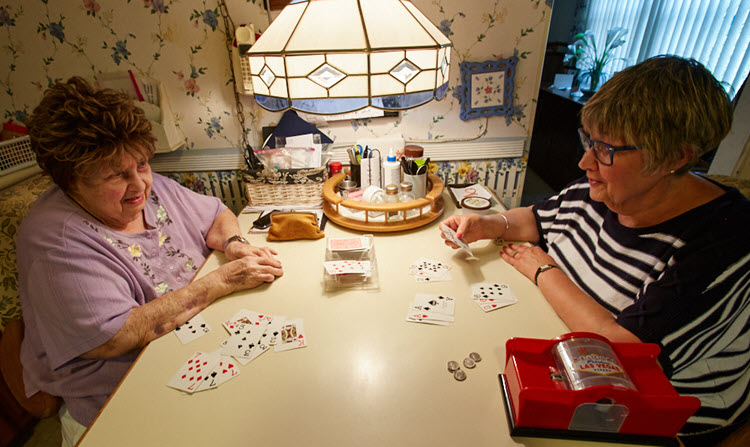How about “Supporting Your Parents” instead?
Google ‘parenting your parents’ and you get about 869,000,000 results in 0.68 seconds. The sources range from venerated publications like Forbes and Kaiser Health News to the Huffington Post. Granted, you must sift through articles about how to be a parent and the danger to children forced to take on the parental role. Bottom line, this is a term that has become common in our English language.
There are many experts in the eldercare field who do terrific work in helping you to understand the dynamics of caring for an elder. I understand that using parenting examples and explaining these in terms of a role reversal allows people to ‘get it’ and immediately see where it applies in their life. But too often in the execution you are discounting the full and rich life your elder has lived. You are missing the opportunity to understand them adult to adult. I have found that ‘parenting’ my mother just sets us up for conflict.
The mistake many of us make when framing the relationship as ‘parenting your parent’ is to fall into the tone of voice you use when your child does something you don’t like or feel is unsafe. It is too easy to use the ‘You must, You need to, You should’ language which is EXACTLY the wrong approach. More importantly, you are missing the opportunity to forge a new, enriched relationship with your loved one.
Let’s reframe our discussion as one where we support our parents, not parent them.
Reframing starts with language. Words have power and meaning because they bring with them our past experiences and biases. If the childhood relationship you had with your loved one was difficult, ‘parenting’ them brings up a host of past experiences that will influence your interactions and likely not in a healthy way. The term also brings years of experts telling us how to act as parents to our children, many of which do not work with an adult.
Granted, what is required to support your parent who has full capacity is different than if they are living with mid to late stage dementia. But even if your loved one is living with dementia, be careful to treat them with dignity as one adult to another.
What do I mean by supporting your elder?
- It means not using language that takes away their control. Using the right language allows you to have hard conversations without anger and other negative emotions.
- It means setting boundaries and then together as a team deciding on several potential solutions if an action they are taking or plan on taking crosses a boundary for you.
- It means understanding how they live their life and then working with them to find the support and resources they need. It doesn’t mean you take on everything so can they live the life they want and you have no life.
- It means being realistic about the solutions you want for them. It’s hard because, let’s face it, our solutions often make our life easier or are solutions we THINK would make them happy.
Let me give you an example. A client worried that his mother was too isolated living at home and wants her to move into assisted living. The quickest opportunity for placement is in facility further away from the sibling that spends the most time with mom. Everyone wants their mother to be happy and safe but they have different views on how to make it happen. So I asked the tough question, “If your mom does move to this facility and your brother can’t visit as often, will you take up the slack since you will now be the closest in proximity?” Your brother has the right to set a boundary with the siblings that says “I simply can’t be the one who is mom’s primary caregiver now that she is that much further from my home.” Then we talked about moving to the facility and what it would take mentally and physically for his 90-year-old mother to move into a place she doesn’t know. “I know you think she will be more social, but I know from my mom that it is exhausting to live in an old body. Do you think she has the physical energy to move into a new place, leave her room for meals etc. and the mental energy to be social and meet new people? You know your mom best. Just think about who she is at this stage in her life and decide if advocating for her to move is in her best interest.” No conclusions were drawn that day, but I know my client is thinking about what I said.
Once you commit to supporting your parents and not parenting them, it takes work, hard work. On the other hand, you get the chance to know your loved one differently as you forge a team. The knee jerk ‘No’ responses become negotiations which will take time. You turn what can be a confrontational relationship into a loving one.
I know it’s possible. I support my mother. I don’t parent her and we have a better relationship than when I was growing up. It is an unexpected and welcome gift.
To learn how to support your elder in more detail, including worksheets and questions to guide you, “Your Caregiver Relationship Contract” is available on Amazon in print and eBook. An audio version will be available in April 2020.
Disclaimer: The material in this blog is for educational purposes only. It is not intended to replace, nor does it replace, consulting with a physician, lawyer, accountant, financial planner or other qualified professional.


[…] Twitter recently, I saw a post regarding an article by caregiving expert Debra Hallisey in which she described a phrase in the context of family caregiving that makes her cringe: […]